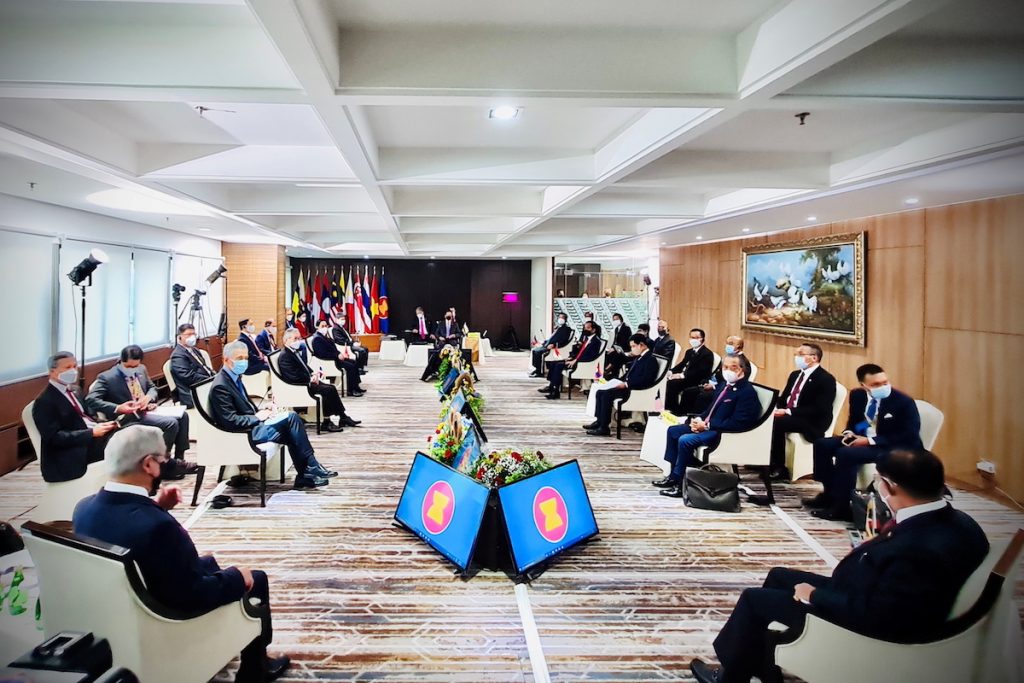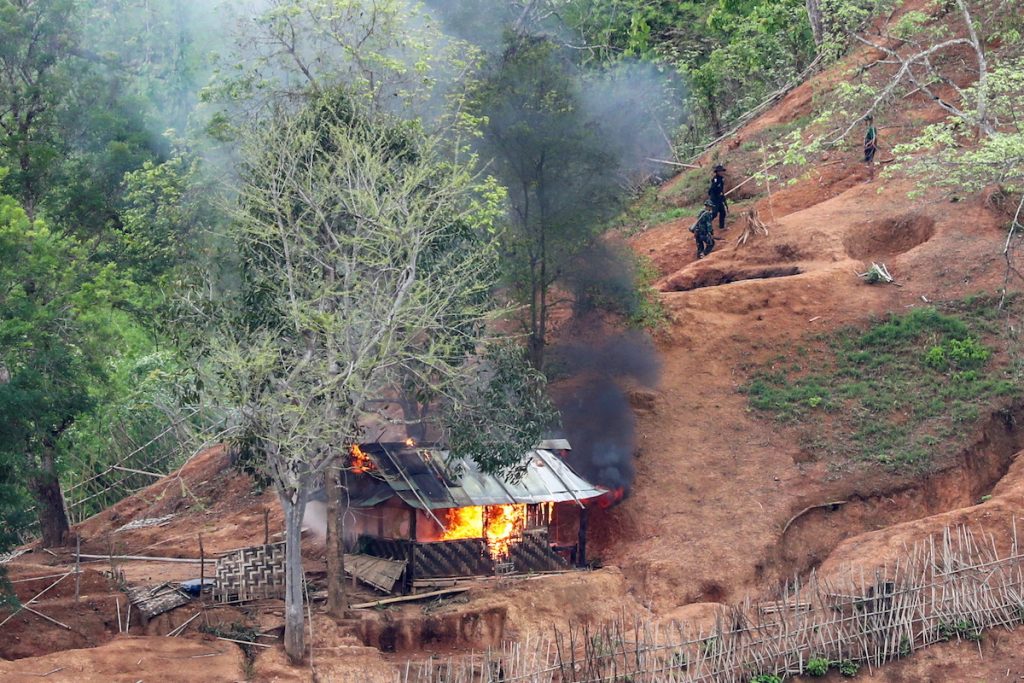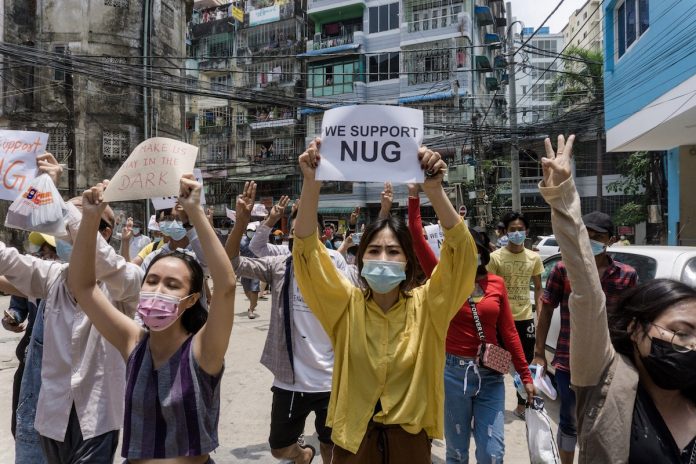Myanmar’s pro-democracy unity government, which includes members of parliament ousted by the military coup, has told Southeast Asia’s regional bloc that it will not engage in talks until the junta releases all political prisoners.
The 10-member Association of Southeast Asian Nations (ASEAN) has been trying to find a path for Myanmar out of a bloody crisis triggered by the Feb. 1 coup and has called for an end to violence and talks between all sides.
But the junta has already declined to accept proposals to resolve the crisis that emerged from an ASEAN summit last weekend that was attended by Myanmar’s Senior General Min Aung Hlaing, but no-one from the civilian side.
The pro-democracy National Unity Government (NUG), formed this month by opponents of the military, said ASEAN should be engaging with it as the legitimate representative of the people.
“Before any constructive dialogue can take place, however, there must be an unconditional release of political prisoners including President U Win Myint and State Counsellor Daw Aung San Suu Kyi,” the NUG prime minister, Minister Mahn Winn Khaing Thann, said in a statement.
There was no immediate comment from any senior officials in ASEAN.
Win Myint, Suu Kyi and others have been detained since the coup, which the military launched as Suu Kyi’s government was preparing for a second term after sweeping a November election.
The military said it had to seize power because its complaints of fraud in the election were not being addressed by an election commission that deemed the vote fair.
Pro-democracy protests have taken place in cities and towns across the country since the coup. The military has cracked down with lethal force on the protesters, killing more than 750 people, an activist group says. Reuters is unable to confirm the casualties as the junta has clamped down on media freedoms and journalists are among the many people who have been detained.

Alarmed by the turmoil in one of its members, ASEAN held a meeting on April 24 in the Indonesian capital with the leader of the junta in a bid to press him to end the crisis.
ASEAN did not invite a representative of Suu Kyi’s ousted government.
ASEAN leaders said after the meeting they had reached a “five-point consensus” on steps to end violence and promote dialogue between the rival Myanmar sides.
More air strikes
The junta later said it would give “careful consideration” to ASEAN’s suggestions, which included appointing an envoy to visit Myanmar, “when the situation returns to stability” and provided that ASEAN’s recommendations facilitated the junta’s own roadmap and served the country’s interests.
Activists had earlier criticized the plan, saying it helped to legitimize the junta and fell far short of their demands.
In particular, it did not call for the release of Suu Kyi, 75, and other political prisoners. The Assistance Association for Political Prisoners advocacy group says more than 3,400 people have been detained for opposing the coup.
The NUG is largely made up of ousted members of parliament together with politicians representing ethnic minorities and pro-democracy protest leaders.
Protesters marched in support of the NUG in the second city of Mandalay on April 28, the Myanmar Now media outlet reported.
The coup has also exacerbated old conflicts between the military and ethnic minority insurgents who have been battling for years for greater autonomy in frontier regions.

Fighting has flared between the army and Karen insurgents in the east near the Thai border, and between the army and Kachin insurgents in the north, near the border with China.
Clashes have also broken out in Chin State, which is on the border with India, between anti-coup activists and security forces.
Karen insurgents captured Myanmar army posts near the Thai border on Tuesday in some of the most intense clashes since the coup which included air strikes by the military.
The military launched more air strikes in the area on April 28, villagers on the Thai side of the border said, but there was no immediate word on casualties.
The Karen and other ethnic minority forces based in frontier regions have supported the largely urban-based pro-democracy opponents of the junta.









